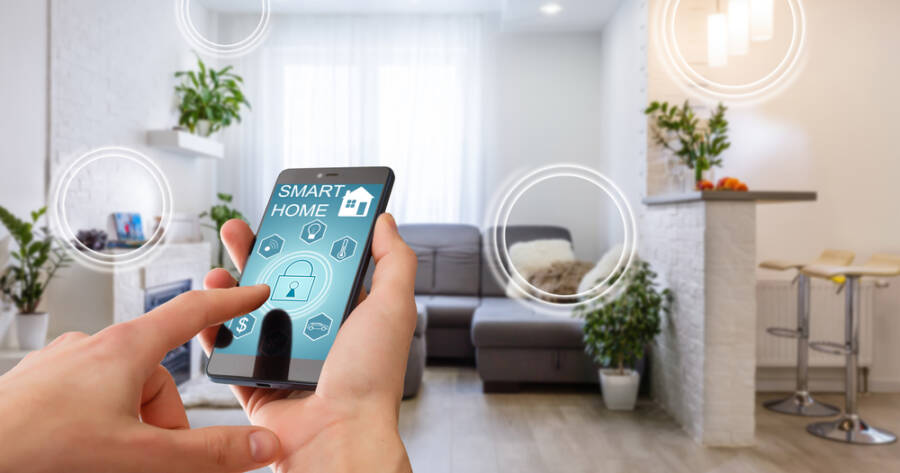Smart home devices have quickly become integral elements of modern living, offering unparalleled convenience and connectivity. These gadgets bring cutting-edge technology into the home environment, transforming ordinary spaces into intelligent, efficient systems. From automated lighting and climate control to security enhancements and entertainment systems, smart home devices offer a glimpse into the future of household management. Learn about the essential smart home technologies available today and how they may enhance daily life.
Smart Hubs and Assistants
At the heart of many smart homes are smart hubs and voice assistants, which serve as centralized control units for connected devices.
Integrating Smart Hubs
Smart hubs like the Samsung SmartThings Hub or Hubitat Elevation bridge the gap between various smart devices, enabling them to communicate regardless of brand or protocol. They allow users to manage connected gadgets through a single interface, often controlled via smartphone apps. A smart hub setup could simplify complex systems, making device integration more seamless.
Voice-Controlled Assistants
Voice-controlled assistants like Amazon Alexa, Google Assistant, and Apple Siri are popular AI-powered devices that offer hands-free operation. These assistants allow users to interact with their smart homes via voice commands, managing everything from lighting to music playback. They can serve as the central node for other smart devices, making it easier to connect and coordinate actions within a home environment.
Smart Lighting Solutions
Smart lighting systems offer customizable and energy-efficient illumination, enhancing both the ambiance and utility of home lighting.
Customizable Lighting Options
With smart lighting options such as Philips Hue or LIFX, users can adjust brightness, color, and lighting schedules through mobile apps or voice commands. These systems often include various bulb designs to fit different fixtures, offering flexibility for integrating new technology without disrupting existing decor. Smart lighting solutions can automate routines, such as dimming lights at night or setting specific moods.
Energy Efficiency and Savings
Smart lighting systems are generally energy-efficient, using LED technology that potentially reduces electricity consumption compared to traditional bulbs. Advanced scheduling and automation settings can further optimize energy use by ensuring lights are off when rooms are unoccupied. Over time, these systems could provide significant energy savings and lower utility bills.
Climate and Energy Management
Smart climate control devices help optimize energy consumption, ensuring comfort while reducing environmental impact.
Intelligent Thermostats
Smart thermostats like the Nest Learning Thermostat or Ecobee adjust heating and cooling settings based on user preferences and occupancy patterns. They can be controlled remotely, allowing homeowners to manage their climate settings even when away. By optimizing temperature regulation, these devices aim to enhance comfort and efficiency while potentially lowering energy costs.
Smart Energy Monitors
Smart energy monitors provide insights into household energy usage, offering data that can help identify opportunities for increased efficiency. Devices like Sense or the Emporia Vue monitor energy consumption in real-time, breaking down usage by appliance or area. By understanding these patterns, users might make informed decisions that lead to reduced energy waste and cost savings.
Home Security Innovations
With smart security devices, homeowners can increase their property’s safety and peace of mind.
Smart Surveillance Cameras
Smart surveillance cameras, such as those from Ring or Arlo, offer high-definition video monitoring with features like motion detection and night vision. These cameras can send alerts to users’ smartphones in real-time, allowing for immediate action if any suspicious activity is detected. Cloud storage options ensure that recorded footage is accessible for review and analysis.
Advanced Door Locks
Smart locks like August or Yale provide keyless entry options, enabling access through smartphones, keypads, or fingerprint sensors. They often allow temporary access codes for guests or service personnel, eliminating the need for spare keys. By combining security with convenience, these locks can be an essential addition to any smart home.
Entertainment and Convenience
Enhancing entertainment experiences and everyday convenience, smart devices cater to diverse lifestyle needs.
Smart Speakers and Displays
Smart speakers and displays, such as the Amazon Echo Show or Google Nest Hub, double as entertainment systems and information hubs. They provide video streaming, music playback, and social media access, all through voice commands or touchscreen interfaces. Their multifunctional capabilities integrate seamlessly into home entertainment setups.
Smart Appliances
From fridges that manage grocery lists to ovens that optimize cooking times, smart appliances bring modern convenience to household chores. Brands like Samsung and LG offer appliances with connectivity options that might improve efficiency and simplify routines. Users can monitor and control appliances remotely, enhancing convenience and reducing the time spent on routine tasks.
Learn More Today!
Smart home devices represent a convergence of convenience and cutting-edge technology, redefining how we interact with our living spaces. Through smart hubs, climate control, intelligent lighting, security systems, and entertainment integrations, these technologies offer solutions to modern household challenges while optimizing efficiency and enhancing lifestyles.
As the smart home ecosystem continues to evolve, these devices create opportunities to simplify everyday tasks, save energy, and secure homes more effectively. By embracing these advancements, homeowners may experience increased comfort and operational efficiency, creating spaces that cater to modern needs and future aspirations. As smart technology becomes ever more accessible, the potential for personalization and innovation within the home environment will only continue to expand.

